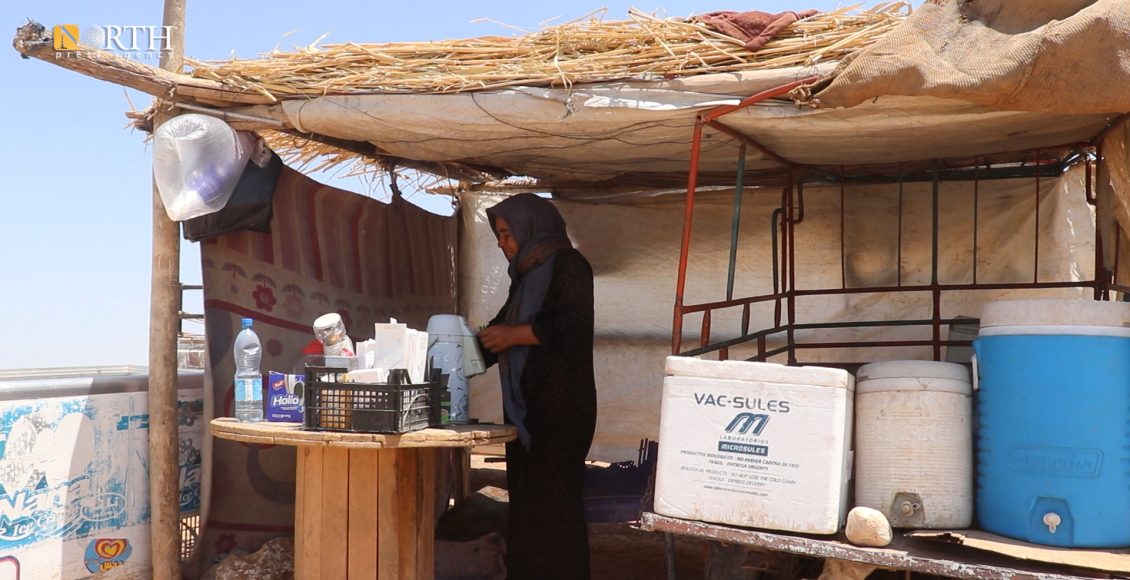IDP family moves on from displacement to owning business in NE Syria
By Nalin Ali
QAMISHLI, Syria (North Press) – A few meters from the Qamishli-Hasakah highway near the city of Qamishli in northeastern Syria, Khayriya Mahmoud, stands in front of her small kiosk, which looks more like a hut or a tent with a roof made of straw, selling hot and cold drinks and other takeaways.
Mahmoud, 44, hails from Homs Governorate in central Syria. She was displaced with her family in 2016 to the countryside of Qamishli after the fighting between the Syrian government forces and the armed opposition groups intensified in her city.
Displacement
Standing in front of her kiosk during scorching afternoon heat, she says when they were first displaced, she and her husband worked in agricultural lands and anything that could secure a livelihood for their nine children.
She notes that leaving their home and moving to another city was not an easy thing to do.
About two years ago, she opened a small kiosk at the intersection of a road with the Qamishli-Hasakah highway, where she sells coffee, tea, cold drinks, and other items.
Mahmoud points out that doing any kind of work is nothing to be ashamed of, saying it is shameful if you beg from people.
Although her work requires a lot of effort and standing for long hours during the scorching summer and freezing winter, she stresses “I am happy with what I do for my family.”
During the summer, she and her husband take turns working at the kiosk. She works during the daytime, and her husband comes at night to stay until morning. In the winter, however, she stays until sundown, then packs up her goods and goes home.
She believes that those who are not satisfied with what they have will never be content with what they desire. She is grateful that the kiosk profits provide enough for her family’s livelihood.
Beginning
Mahmoud said that they did not have the money to buy tools or anything to open the kiosk. All they had was a goat, which they gave to man in exchange for a three-wheeled motorcycle so they could place the goods in it for ease of movement and selling.
She notes that they currently buy ice cubes every day for 45,000 Syrian pounds (SYP, which equals about $3). This doubles their economic burdens, but she has to buy them as customers demand cold water and drinks in summer.
She hopes that one day she can buy a freezer powered by a solar energy so she can sell cold drinks without having to buy ice cubes.
Mahmoud prefers to stay in Qamishli rather than return to Homs. She emphasizes that they cannot return to Homs and go through all the suffering they endured and start all over again.

